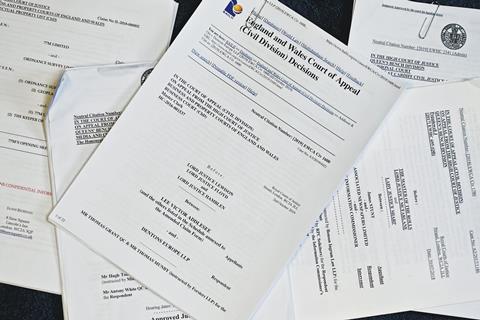Little over half of judicial review rulings handed down by the courts make it on to the main free database of court judgments, according to new research. A study by experts from the University of York, working with London firm Mishcon de Reya, found that, between 2015 and 2020 only 55% of 5,408 administrative court judgments identified by a commercial subscription service appeared on the website of the British and Irish Legal Information Institute (BAILII).
The authors say access to public law judgments 'matters a great deal'. Access to judgments can shape legal advice and also influence public policy.
The biggest gap in publication appears to be with judgments given ex tempore rather than handed down as Word documents, the team concludes. While a stenographer is sometimes brought in to court to transcribe these judgments in real time, there is currently no infrastructure in place to enable HM Courts & Tribunals Service to acquire such transcriptions.

'It is important to caution against any suggestion that ex tempore judgments are somehow inherently less important or otherwise matter less,' the authors comment in the journal of the UK Constitutional Law Association. 'While some judgments may be recognised immediately as important, it is, particularly given the multi-layered value of judgments, not always apparent which judgments may be deemed valuable at some future point.' For example, they point out, a string of seemingly simple decisions may be used to build important arguments and judgments decades later. 'Similarly, it is impossible to tell which judgments may be important for future research—cases that may seem routine may make up an important dataset in the future.'
They conclude that public lawyers, whether in research or practice, should pay close attention to this issue, particularly as the government is reshaping how judgments are managed and made available through its initiative to make judgments available via a National Archives website due to go live next month. 'The gap in the availability of judgments we have examined in this post shows that an important part of public law is not meaningfully public, and ongoing changes ought to be seen as an opportunity to progress from that unsatisfactory position rather than entrench it.



























2 Readers' comments